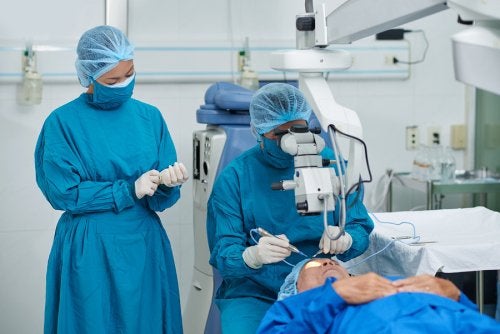-
Protecting Your Eyes from UV Rays
The light that we get from the sun comes in the form of ultraviolet, or UV, rays. While the first sunny day of spring might improve your mood, exposure to these rays comes with implications for your eye care near Chicago. Talk to your eye doctor about how to keep your eyes healthy , and watch this video on protecting your eyes from UV rays.
Overexposure to UV rays can fade your carpets and furniture, burn your skin, and even damage your eyes. This is why you should do your best to protect yourself from overexposure when you spend time in the sun. Sunglasses can be effective, but you should choose a pair that blocks 100% of both UVA and UVB rays, so be sure to check the label. It’s also a good idea to wear a hat for extra protection. Keep in mind that UV rays can even damage your eyes on cloudy days.
-
May is Healthy Vision Month
Although you should practice proper eye care every day, May happens to be Healthy Vision Month. The purpose of this campaign is to raise awareness about the importance of eye health and teach people how they can keep their vision sharp for the rest of their lives. In order to stay on top of your eye health, you should know a little bit about your family history and what you might be susceptible to. Do your best to protect your vision when you’re out and about, and see your eye doctor in Chicago for routine checkups. May is Healthy Vision Month, so continue reading to learn about the principles it focuses on.
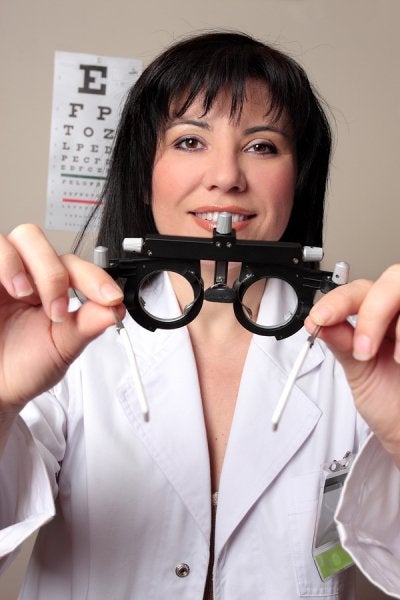
Know Your Family History
You are who you are thanks to nature and nurture, and both of these constructs play a role in your eyesight as well. Some of the traits that make you who you are will have been passed down through your bloodline. For this reason, it’s a good idea to know what kinds of health issues run in your family. Just like heart disease and bipolar disorder, eye conditions can be hereditary. Celebrate Healthy Vision Month by learning about your family’s eye health.
Protect Your Eyes
Your eye doctor wants the best for your eyes, but you need to do your part to keep your vision sharp. Overexposure to ultraviolet rays can have a negative impact on your vision and even lead to eye health issues. When you go outside, be sure to wear sunglasses that block out ultraviolet rays. It’s also a good idea to stay in the shade, and you can even wear a hat for extra coverage. The better you protect your eyes, the happier your eye doctor will be during your next visit.
See Your Eye Doctor
Proper eye health is a team effort, so you can’t handle it alone. Your ophthalmologist knows what’s best for your eyes, and he or she can screen you for diseases that you might not catch yourself. If you haven’t seen your eye doctor lately, take the opportunity to make an appointment during Healthy Vision Month.
-
Tips for Avoiding Common Eye Injuries in Sports
Sports are a great way to get physically fit and connect with peers, but these activities are also risky. Thousands of sports-related eye injuries are reported each year in the U.S. Many of these are preventable. During Sports Eye Safety Month this April, talk to an eye doctor in Chicago about protecting your vision. Your ophthalmologist can help you learn about the potential risks of your favorite sports and how to reduce these risks.
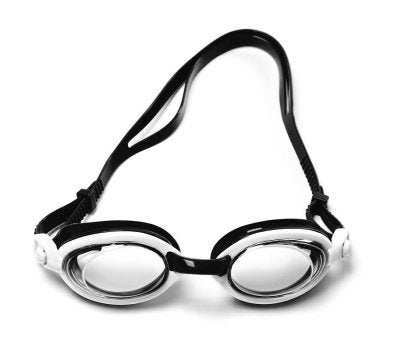
Get Informed About the Risks
Ophthalmologists recognize low risk, high risk, and very high risk categories of sports. A low-risk sport is one that involves no airborne objects, no objects that are swung such as racquets, and no bodily collisions. Some common examples are swimming, cycling, and track and field. High-risk sports do involve those risk factors. A few examples are baseball, hockey, football, and fencing. A very high-risk sport is one that involves risk factors of eye injuries and does not require participants to wear eye protection, such as boxing and martial arts. When you see an eye care professional, he or she can advise you as to the types of eye injuries that might occur with your chosen sport. Most sports-related injuries are caused by blunt force trauma. Penetrating injuries are less common in sports, but cannot be completely ruled out. There has been at least one instance of a fishing hook penetrating an eye .
Choose Protective Eyewear
Protective eyewear should always be worn for high-risk and very high-risk sports, even if the sports organization does not require it. It isn’t wise to rely solely on face masks as a means to prevent eye injuries, since sports equipment or a teammate’s fingers could slip through the mask. Protective eyewear should be specific to the sport you’ve chosen. For example, your eye doctor will recommend sports goggles with polycarbonate lenses for playing basketball and racquet sports.
Encourage Compliance in Children
Some children may resist wearing protective eyewear, especially if their teammates aren’t wearing it or if they feel self-conscious about their looks. To encourage compliance, parents can explain what might happen if a child fails to wear protective eyewear. Older children may be told that, if they wear regular eyeglasses, these can shatter and penetrate the eyeball. Parents can convince younger children to protect their eyes by having them shut their eyes and try to perform common tasks without the benefit of sight.
-
Choosing the Right Glasses for Your Face Shape
If you wear glasses for vision correction , then you may realize how great an impact your frames can have on your appearance. Are you planning to see an ophthalmologist to get new eye glasses in Chicago? If so, then watch this video for tips on choosing glasses that complement your face shape before heading to the eye doctor.
Start by pulling your hair back and outlining your face by tracing it on a mirror. Then, determine if it most resembles a circle, heart, oval, diamond, square, or rectangle. If your face shape is a circle, then choose glasses that have strong, angular shapes which will add definition to your look. Conversely, a square face shape can be softened with glasses that have round frames. For heart-shaped faces, rimless frames can be ideal, and heavy or over embellished ones should be avoided.
-
The Importance of Diagnosing Glaucoma Early
When was the last time you visited an optical center in Chicago to have your eyes checked by an ophthalmologist? According to eye doctors, you should have your eyes examined every 2 to 4 years if you are under age 40. This rate increases to every 1 to 3 years from age 40 to 54, every 1 to 2 years for ages 55 to 64, and every 6 to 12 months for individuals ages 65 and older.
Diagnosing glaucoma early is an important part of eye care because this condition can result in permanent damage to your vision. Glaucoma is a group of eye disorders that cause progressive damage to the optic nerve. When left untreated, glaucoma can lead to permanent loss of vision and blindness.
Glaucoma causes increased pressure in the eye that damages the optic nerve and is the second-leading cause of blindness in the United States. When caught early, glaucoma can be treated to stop or slow the progression of damage to the eye and preserve the patient’s vision.
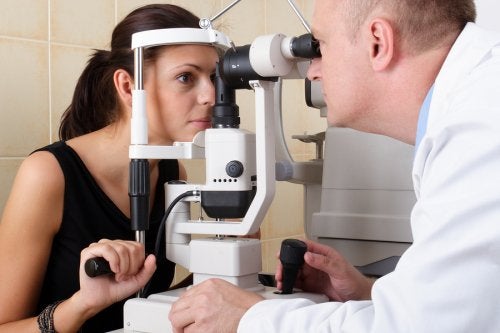
-
Answering Common Questions About Intraocular Implants
Are you planning to see an ophthalmologist about getting intraocular implants in Chicago ? If so, then you could benefit from knowing more about this type of eye surgery. Read on to learn the answers to common questions about intraocular implants.
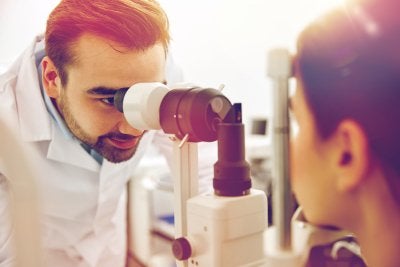
What are intraocular implants?
Sometimes referred to as intraocular lenses (IOLs), intraocular implants can be thought of as permanent contact lenses. However, instead of sitting on top of the cornea, an IOL is implanted in the eye and can be used to treat refractive errors or cataracts. An intraocular implant can replace your eye’s natural lens after it is removed during cataract surgery, or it can work with your eye’s natural lens to improve its focusing power and enhance your vision.
What are the benefits of intraocular implants?
Intraocular implants provide a solution for poor vision that can eliminate the need for wearing eyeglasses or contact lenses. IOLs offer great performance and excellent quality of vision along with stable and predictable results. Also, the procedure is simple, requiring just one operation through a microincision and no additional maintenance. Intraocular implants can address many levels of nearsightedness and can be removed later if needed.
What happens during intraocular implant surgery?
The procedure is usually performed on an outpatient basis, and your ophthalmologist will surgically place the lens in your eye. For cataract surgery, the clouded lens is removed, and then the IOL is put in place. The procedure takes only a short amount of time, and the full recovery period is usually about a month.
What is Visian ICL?
Visian ICL is the first intraocular implant of its kind to receive FDA approval for use in the United States. The ICL lens is made from Collamer, which is a soft and flexible material that provides unmatched biocompatibility. Visian ICL can be used to treat a wide range of refractive errors. If you have been turned down for LASIK and other surgical eye procedures, then ICL surgery may offer you a solution for improving your vision.
-
Preserving Your Eyesight After Being Diagnosed with Glaucoma
While eye care is important at all stages of life, it becomes even more critical after being diagnosed with glaucoma. If your eye doctor in Chicago has informed you that you have this condition, then continue reading to learn how to help preserve your eyesight.
Glaucoma is typically a result of pressure that builds up in the eye and causes damage to the optic nerve, which is responsible for transmitting information to the brain. As the optic nerve deteriorates, so does vision. For this reason, glaucoma can lead to blindness in just a few years if not treated by an eye doctor.
Diagnosing glaucoma early and being treated by an ophthalmologist are key to preserving your eyesight when you have this condition. For this reason, it’s important to see your eye doctor regularly for checkups and to adhere to your treatment plan. Some of the treatment options for glaucoma include microsurgery, laser surgery, and medicated eye drops.
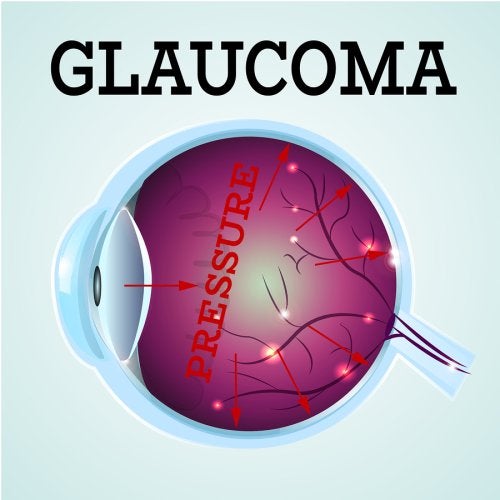
-
Spotlight on the Leading Cause of Vision Loss for Americans Over 60
When it comes to vision loss in seniors, age-related macular degeneration (AMD) is a common problem seen by eye doctors in Chicago . In developed countries, AMD is the leading cause of irreversible vision loss in older adults. If you are nearing age 60 and have concerns about your eye care, then continue reading to learn more about this condition.

The Basics of AMD
At the center of the retina is a small area called the macula, which provides pinpoint vision and enables you to see details clearly. In this way, the macula plays an important role in helping you read, drive, and recognize faces. Macular degeneration refers to the breakdown of the macula, and it’s common for people to develop this condition as a natural part of the aging process. For this reason, age-related macular degeneration is the most common type of macular problem.
The Causes of AMD
Macular degeneration can result from abnormal blood vessel growth beneath the retina. The formation of deposits under the retina, called drusen, are another cause. Studies indicate that genetic changes could be responsible for many cases of macular degeneration, and researchers suspect that the oxidative stress caused by the formation of free radicals in the body may also play a role in the development of AMD.
The Symptoms of AMD
AMD can affect your central vision by causing blurriness, distortion, or dark spots, and this condition rarely impacts the peripheral vision. As an example, someone with advanced AMD might be able to see the outer ring of numbers when looking at a clock, but not the hands in the middle.
The Treatment of AMD
At this time, there is no cure for macular degeneration. However, your eye doctor may recommend several options that can potentially reduce how AMD affects your eyesight and address your symptoms. Supplementation with certain vitamins has been shown to be beneficial, and your eye doctor may also recommend laser therapy, vision aids, or medications as part of your treatment.
-
Understanding Glaucoma
Sometimes referred to as a silent thief of sight, glaucoma is a serious eye condition that can affect your vision and even lead to blindness. If you’re wondering what impact this disease might have on your eye care near Chicago, then watch this video to learn more about glaucoma.
In the United States and worldwide, glaucoma is a leading cause of blindness, occurring when fluid buildup in the eyes causes compressive damage to the optic nerves. This condition is sometimes called a thief of sight because patients typically experience no symptoms until they have already lost a significant amount of their vision. For this reason, eye care professionals recommend that people regularly visit their ophthalmologist or eye doctor for checkups.
-
Comparing Cataract and ICL Surgery
Are you exploring your options for vision correction near Chicago? If so, then your eye doctor may recommend cataract or ICL surgery. A cataract is a cloudy area on the lens of the eye, and cataract surgery involves the removal of the eye’s natural lens after it becomes clouded by a cataract. An intraocular implant (IOL) can then be placed where the natural lens once sat. For patients where the use of an IOL is not possible, eyeglasses or contact lenses must be worn to focus light coming into the eye following cataract surgery.
On the other hand, some people experience poor vision due to refractive errors, meaning that they struggle to see things that are near, far, or both. Contact lenses and eyeglasses are traditionally used to correct these vision problems, but Visian ICL surgery offers another solution. Unlike cataract surgery, which requires the removal of the eye’s lens, Visian ICL surgery involves the placement of an IOL in front of the patient’s natural lens so that the 2 lenses can work together to correct the person’s refractive errors. Speak with your eye doctor to learn if cataract of Visian ICL surgery could be right for you.
